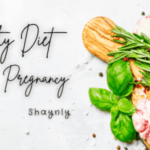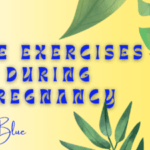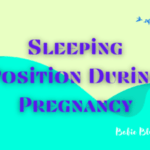- Unique Girl Names 2025: A Comprehensive Guide to Extraordinary Names for Your Daughter
- Essential Tips for Traveling with a Baby: A Parent’s Guide
- Postpartum Anxiety Management Without Medication: A Comprehensive Guide
- Breakouts After Stopping Birth Control: Timeline and Solutions
- High-Fiber Foods for Pregnancy Constipation: A Evidence-Based Guide
- Foods to Eat During Pregnancy: A Guide to a Healthy Diet for Expectant Mothers
- When Do Babies Start to Crawl? A Comprehensive Guide for Parents
- How Long After Baby Can You Have Tummy Tuck: A Comprehensive Guide
- Unique Girl Names: A Comprehensive Guide to Distinctive Choices
BabieBlue - Mom Baby Health & Wellness
- Foods to Avoid During Pregnancy: What You Need to Know
- Safe Exercises During Pregnancy: A Comprehensive Guide for Expecting Mothers
- The Benefits of Practicing Yoga During Pregnancy: A Comprehensive Guide for Expecting Mothers
- Prenatal Pilates: Secret of Strengthening and Relaxing Your Body During Pregnancy
- Sleeping Position During Pregnancy: The Ultimate Guide
- The Benefits of Taking Prenatal Vitamins for a Healthy Pregnancy
- High-Fiber Foods for Pregnancy Constipation: A Evidence-Based Guide
- How to Remove Pigmentation from the Face Permanently: A Comprehensive Guide for Pregnant Women
- Living with Dystonia: Symptoms and Coping Strategies
- Understanding Benign Tumors: A Comprehensive Guide
- Unveiling Botulism: Causes, Symptoms, and Treatment
- Cosmetics and Your Health: Making Informed Choices
- Deep Vein Thrombosis Demystified: Risks and Prevention
- Decoding Dietary Fats: Good vs. Bad for Your Health
- Navigating Fetal Alcohol Spectrum Disorders: Awareness and Support
- Confronting Head and Neck Cancer: Diagnosis and Treatment
- Unveiling Heart Valve Diseases: Types and Treatment
- Tackling Leishmaniasis: Causes, Symptoms, and Treatment
- Living with Marfan Syndrome: Symptoms and Lifestyle
- Navigating Medical Ethics: Principles and Dilemmas
- Addressing Medication Errors: Prevention and Awareness
- Navigating Chronic Kidney Disease: Risks and Management
- Infections and Pregnancy: Safeguarding Maternal and Fetal Health
- Coping with Disasters: Prioritizing Mental Health
- Confronting Multiple Myeloma: Diagnosis and Treatment
- Navigating Menopause: Symptoms and Wellness Strategies
- Understanding MRSA: Causes, Symptoms, and Treatment
- Demystifying Pacemakers and Implantable Defibrillators
- Navigating Peripheral Nerve Disorders: Causes and Management
- Unveiling Syphilis: Causes, Symptoms, and Treatment
- Living with Tailbone Disorders: Symptoms and Coping
- Understanding Tay-Sachs Disease: Causes and Support
- Sun Exposure and Your Health: Balancing Benefits and Risks
- Steroids Demystified: Uses and Risks
- Decoding Staphylococcal Infections: Causes and Prevention
- Living with Porphyria: Symptoms and Lifestyle Considerations
- Blog (117)
- Health (57)
- Online Resource (1)
- Pregnancy Calculator (16)















